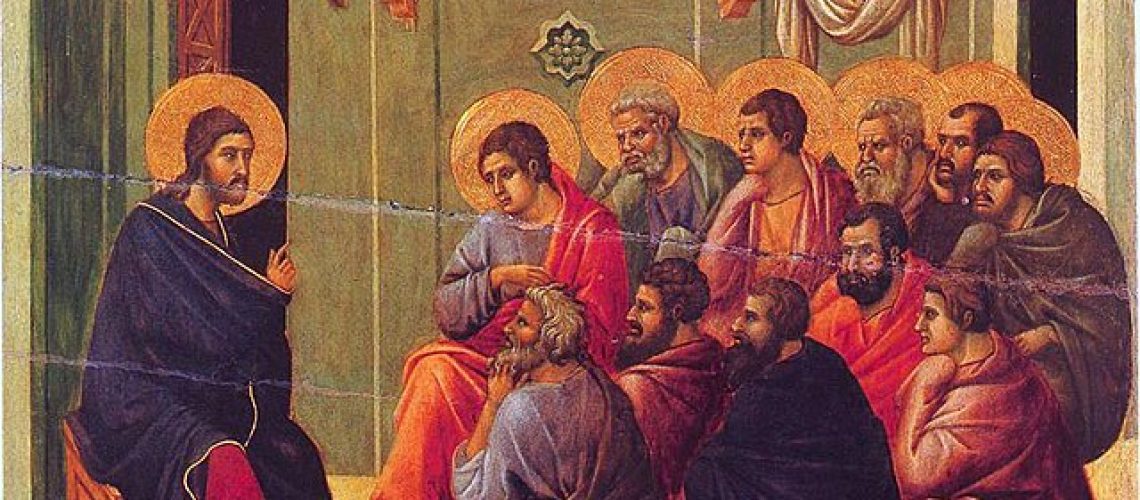In the gospel of Luke, Jesus is the teacher of truth and the cleanser of the temple. His ministry was the blueprint for the ministry of the apostles. The latter will begin spreading the gospel beyond the temple and Jerusalem upon receiving the power of the Spirit. Thus, the disciples are painted in better light in Luke than they are in Mark in anticipation of their future role as new prophets and philosophers responsible for the spread of Christianity.
Admittedly, it is more difficult to find the Messiah in Acts than in the Gospels that narrate His life, death, and resurrection. That said, the absence of the Messiah visibly, as He ascends in the beginning of Acts, is balanced by the active work of the Spirit who manifests the Messiah in the lives of the apostles and believers after Pentecost.
Martyrdom Accounts
The most recent martyrdom account before the times of Jesus narrates the cruel death of seven children and their mother. Prior to their death, they declare their murderers defiled and wretched. They remind their murderers of how their cruelty will not go unpunished promising that God will avenge them by punishing their murderers and their descendants. You can read the full narrative in 2 Maccabees 7.
This is to be contrasted with Jesus’s execution where He pleads, “Father, forgive them, for they do not know what they are doing” (Luke 23:34). Like the Messiah, Stephen’s last words are, “Lord, do not charge them with this sin” (Acts 7:60). But there is more to Stephen’s martyrdom than meets the eye as it matches closely the “martyrdom” of Jesus. Both refer to the Son of Man being at the right hand of God (Luke 22:69; Acts 7:56). Both commend their spirit toward heaven (Luke 23:46; Acts 7:59).
Jesus’ death did not have the final say. Likewise, Stephen’s death was not the end of ministry to the Gentiles, of which Stephen was the pioneer. Rather, from the very site where Stephen was murdered rises the figure of Saul guarding the clothes of Stephen’s executioners. Saul becomes Paul after a mystical encounter with the Risen Messiah on the road to Damascus—the same risen Messiah who once opened the eyes of the two disciples on the road to Emmaus. Unlike the two disciples, Saul loses his eyesight temporarily.
The Messiah and the Suffering Church
The Messiah identifies Himself with the following words, “I am Jesus, whom you are persecuting” (Acts 9:4). But was Saul really persecuting Jesus? Saul was persecuting the Church. But that Church is not alien to Him. Rather, it is His own body that He identifies with. These words would continue ringing in Saul’s ears till he applies the words of Adam, “a man shall leave his father and mother and be joined to his wife” (Genesis 2:24) to Christ and the Church in his epistles to the Ephesians 5:22-32.
Saul’s temporary blindness is healed, and his eyes opened again to see himself anew as Paul, the apostle to the Gentiles. Paul would emulate the Messiah in his life just as Stephen did so much that he once makes the remark, “imitate me as I imitate Christ” (1 Corinthians 11:1). After a lengthy and prosperous service, Paul is eventually executed after the good news of the Messiah reach Rome with its vast boarders spread to “the ends of the earth” (Acts 1:8).
The Messiah in the book of Acts conceals Himself within the lives of those who imitate him in their conduct. Stephen might have not spoken much beyond the one discourse that ended with his execution. But his conduct and love for the poor is what made him an imitator of Christ worthy of the diaconate and eventually martyrdom. Likewise, Paul’s recorded discourses in Acts are quite a few in comparison to the thousands of kilometers he traveled (mostly on foot) to spread the gospel.
Whether in Acts or today, the Messiah still identifies with the Church, persecuted yet ever expanding; suffering yet always healing; its members dying but forever vivifying others by the good news of the kingdom.
Prayer:
We thank You, O Father, for through the sending of Your Son we have been made Your adopted children. We thank You, O Son, for through the sending of Your Spirit we have been made members of Your body, the Church. We thank You, O Holy Spirit, for you have made our bodies a temple of Your dwelling. O my Trinity, may we, the members of Your Church, forever imitate Your outpouring love.

